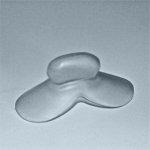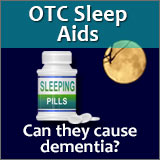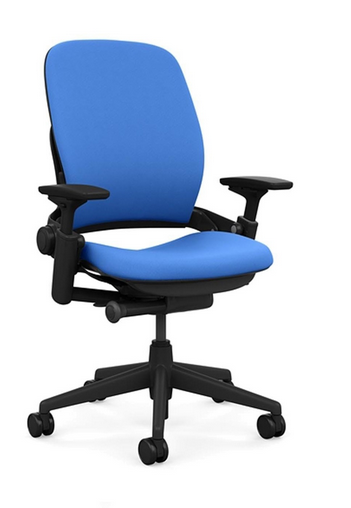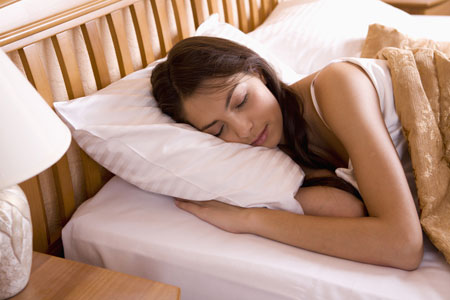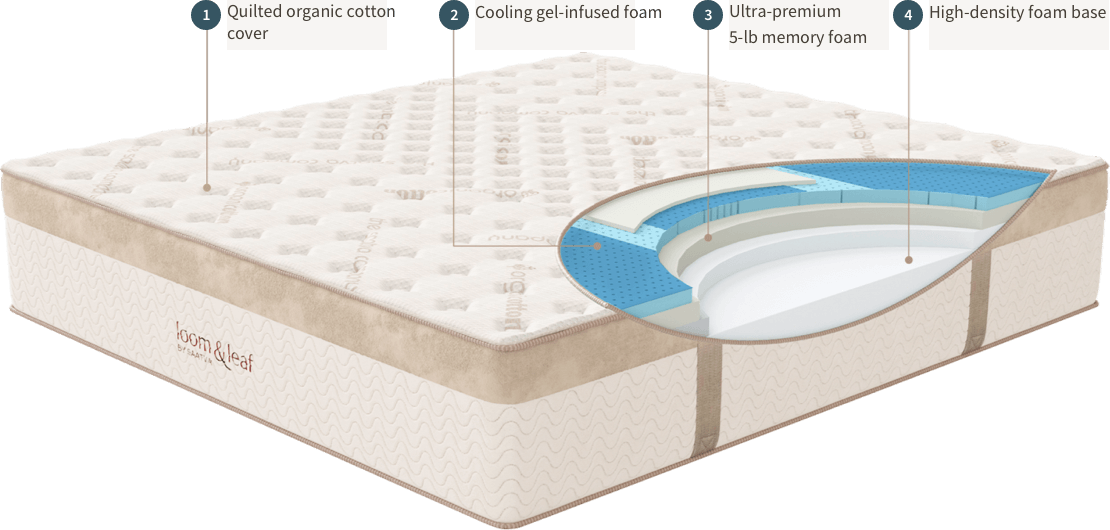What Causes Snoring? These Eight Main Factors
What causes snoring is a question that more people should be asking.
If you want to know how to reduce snoring to zero, see below.
Why? Well first of all, snoring is the most common symptom of the dangerous sleep disorder known as obstructive sleep apnea.
Second, it's been reported that anywhere from 45 to 60% of adults snore occasionally...and 25% of these adults are chronic snorers. (Which means a heck of a lot of couples are sleeping in separate bedrooms...or wearing earplugs for snoring.)
Third, loud snoring not only disrupts the bed partner's sleep, it also repeatedly disturbs the sleep of the snorer. The person who snores will not remember awakening throughout the night. Yet this fragmented sleep will lead to daytime sleepiness—a common cause of dozing off at the wheel of a car.
And fourth, estimates are that 70% of the people referred to sleep clinics snore. (Maybe I should send my dog Cody to a clinic...he snores like a drunken sailor!)
What causes snoring in so many people?
The causes of snoring come from a variety of things, as you'll see below. However, the actual mild or loud sounds of snoring are due to vibrations of the soft tissues at the back of the mouth or throat.
Soft tissues are composed of the following:
- Soft palate. This is muscular tissue at the back of the roof of the mouth.
- Uvula. That's that
"thingy" hanging down from the roof of your mouth at the back of the
throat. Sort of like an icicle hanging down from the roof of a house.
- Tonsils. These are at the back of the throat along the sides.
Snoring is mainly due to vibrations of the soft palate and uvula.
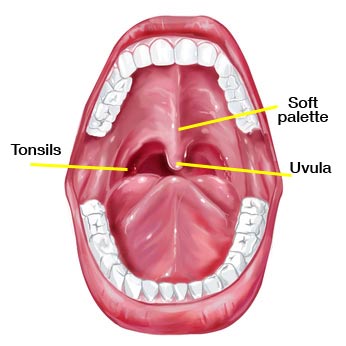
So what causes snoring vibrations
of these soft tissues?
Snoring occurs when the upper airway passage at the back of the mouth becomes somewhat restricted. This happens because when you lie down to sleep, the muscle tone in the back of the throat...including the tongue... begins to loosen up.
As muscles relax, the tongue will ease itself to the back of the throat, causing restricted airflow, and hence, snoring vibrations as a person breathes in and out.
Snoring tends to be worse for people who sleep on their backs.
So it's important to sleep either on your stomach or on your side, preferably your side.
Eight factors that restrict airflow
- Dreaming (the REM stage of sleep). Muscle tone goes especially slack during deep sleep causing a narrow passage through the tissues in the throat.
- Narcotics, allergy medicine with antihistamine, or sleep medications.
- Alcohol. Having a
few drinks (or a few too many) too close to bedtime causes throat
muscles to relax. The best way to stop snoring may be to stop drinking.
- The shape of the mouth. Some people have a long uvula and/or a big, thick soft palate.
- Enlarged tonsils.
- Obstruction of the nose. A
cold, allergy, sinus infection, or cigarette smoke can all cause
swelling in the tissues of the throat and a blocked and stuffy nose.
For more information on the connection between smoking and snoring, and for a proven, unique way to quit smoking, see my article Do You Snore and Smoke? Then Try This for Help With Snoring. - Being overweight. A
larger neck and bulky throat tissue are two of the consequences of
carrying around extra weight. This in turn can cause the airways to
narrow and affect breathing.
- Deviated nasal septum. The wall in your nose that separates the nostrils may be deformed and is what causes snoring for some people.
Additional notes on what causes snoring
- Men tend to snore more than women.
- Snoring during pregnancy is common. If the snoring is loud, and
if there is also daytime fatigue, it's important to mention this
to the doctor. That's because women snoring loudly during pregnancy is often one of the
sleep apnea symptoms.
This condition could be harmful to the unborn baby.
- The tendency to snore increases as a person ages.
What causes snoring in children?
Snoring in a child may be due to large tonsils and adenoids.
Also, an interesting study reported in the April 2006 journal Chest found that young infants are at a much higher risk of becoming habitual snorers if they have parents who snore. The study stated: "Among parents of the 681 children, 138 of the mothers (20%) and 315 of the fathers (46%) were reported to have HS [habitual snoring]."
In addition, these children (about one year old) who tested positive for atopy (which is the tendency to develop asthma or allergies) were also at a much higher risk of habitual snoring. And the study also found that African-American children showed a higher risk of being chronic snorers.
Severe snoring is hazardous enough for adults, especially due to the risks of sleep apnea.
But what causes snoring in children is even more important for parents to be aware of. The reason being that in sleep disorders in children, habitual snoring during childhood has been associated with attention deficit hyperactivity disorder (adhd), as well as decreased mental function and learning ability. Obstructive sleep apnea in children is also a concern.
Another tip on what causes snoring
In my article, Discover How to Avoid Snoring, I mention that a worn out, saggy mattress can lead to snoring.
After about seven or eight years, sometimes sooner, a mattress wears out. Getting a new mattress can help with snoring and back pain.
If you are in need of a new mattress, read my article, Maverick Mattress CEO Answers the Question, What is the Best Mattress? It shows you what mattress stores don't want you to know.
And I also show you where to get a luxury mattress at a steep discount.
How to reduce snoring…to zero!
How would you like to know how to reduce snoring so it disappears like an ice cube on a hot day?
Thought so.
Listen, if you or your partner has to sleep on the couch every night, let’s change that.
This weird little piece of plastic you see to your right has changed thousands of people’s lives. It was created by a dentist and sleep researcher at the University of Calgary.
The darn thing actually works. Not only as a snoring cure, but also to reduce sleep apnea symptoms. All the proof you need to prove this to yourself is on their website.
They even have a video on how to use it, information on how it was created, and how you can try it risk free for 30 days.
If you really want to know how to reduce snoring and have tried everything else, and nothing worked, this will be like finding gold nuggets in a stream bed.
Why does it work? I’ll give you a big clue. It’s designed to pull your tongue out of the way so it doesn’t block your breathing.
It’s so logical, why didn’t anyone think of this before?
I just showed you above what the human mouth looks like. It’s easy for the tongue to block airflow into the lungs when you are sleeping. The Good Morning Snore Solution prevents that.
Now that you know what causes snoring, why not do something about it and get a good night's sleep for a change? Here’s the link to see what the Good Morning Snore Solution is all about.
Here are more articles you will find helpful
Don't Even Think About Buying A Memory Foam Topper Until You Read This
12 Healthy Weight Loss Tips
5 Good Weight Loss Foods
Discover How To Avoid Snoring...Starting Tonight
Why Getting Help With Snoring Saves Lives (A Sleep Chat Back Issue)
Return From What Causes Snoring To Sleep Disorders Home Page
